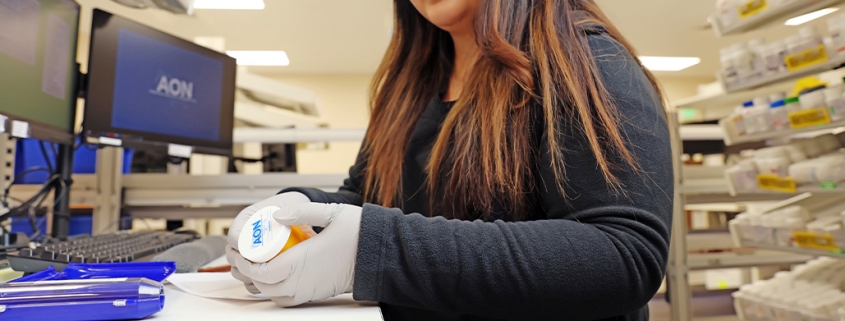Beyond the Bottom Line: How AON Pharmacy Achieved Millions in Cost Savings
AON Pharmacy reported a $2 million cost savings through effective processes to reduce waste and unnecessary prescription refills.
The rising costs of prescription drugs, especially oncolytic medications, have consistently been at the forefront of patient care where health systems, physicians, pharmacists and others have remained vigilant in looking for ways to reduce the costs of prescriptions. During these ongoing challenges, AON Pharmacy and its process initiatives have emerged as a successful partner in cost savings. By the end of 2023, the pharmacy achieved cost savings of almost $2 million by performing a comprehensive reassessment before each prescription refill and therefore, reducing wasteful and unneeded refills.
At the heart of healthcare’s cost dilemma lies the increasing burden of prescription drug expenses. As medication prices soar, patients grapple with the prospects of affordability for both direct and indirect costs, payers face a mounting financial strain of paying for potentially unneeded claims and physicians are left to navigate the task of balancing optimal patient care with economic realities.
The price of cancer drugs has been on the rise over the past several years — and there is no indication that this sharp increase is on the decline or will plateau. According to the President’s Cancer Panel, between 2009 and 2013, cancer drugs were priced at exceeding $100,000 per patient for one year of treatment, and in 2015, the cost of new cancer medications fell between $7,484 and $21,834.
Unsurprisingly, one-third of adults have reported being unable to afford these critical medications, as reported in the article “Drug Companies Continue To Hike Prices Above Inflation.” The financial burden is exacerbated because patients often experience a degree of indirect costs associated with their cancer diagnoses. These indirect costs may include expense fluctuations related to a loss or decline in income, transportation costs associated with travel to and from appointments and treatments, and even childcare costs.
The increase in costs and the inability to afford the medications can have devastating consequences on patients’ cancer journeys and their survival rates. For example, patients may fail to adhere to their prescription schedules to stretch out the supply of medications, allowing the treatment to not be as effective and reducing the quality of life experienced. Patients may also skip or delay paying for other expenses, such as groceries, to save money that can then be used for their prescriptions.
AON Pharmacy’s achievement is a testament that process improvements can reduce costs for all involved, from patients to physicians to payers, and illustrates their commitment to optimizing patient care while mitigating financial burdens to increase patient care, well-being and quality of life experienced.
Related: The Benefit of a Centralized Pharmacy
AON Pharmacy specializes in oral oncolytic medications and is the provider pharmacy for AON practices and patients to ensure seamless care within the network. Its services include insurance and copay assistance, dispensing, shipping, counseling and patient support. The pharmacy is a trusted source for physicians as the electronic medical records connect pharmacists and physicians, enabling them to collaborate effectively on patient medication management to improve timely and appropriate therapy.
AON Pharmacy holds accreditations from ACHC, NABP and URAC Specialty Pharmacy.
Related: What Does the URAC Re-Accreditation Mean for You?
For more information about AON Pharmacy, visit www.AONcology.com/pharmacy.






